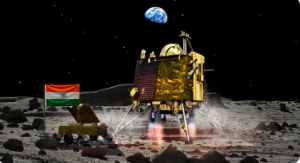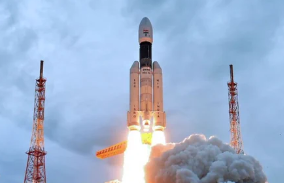Indian Space & Research Organisation (ISRO) is set to launch Chandrayaan-3 in August 2022, two years after its second mission crashed on the moon’s surface.
The mission was announced by the Department of Space after a series of questions regarding delay arose in the Lok Sabha.
According to India Today, the Department of Space shared a written note stating the lessons learnt from the Chandrayaan-2 mission helped pave the way for research for the next mission. The department further added that Chandrayaan-3 has completed the required series of tests and is scheduled for an August 2022 launch.
Jitendra Singh, Minister of Science & Technology, attributed the mission’s delay to the pandemic. “Reprioritisation of projects has taken place in the backdrop of space sector reforms and newly introduced demand-driven models,” the minister stated.
Also Read: Who is new ISRO chief S Somnath?
The first Chandrayaan mission had stellar findings, including the discovery of water on the moon’s surface. Chandrayaan-3 was initially scheduled to launch in 2021, but was pushed back due to the pandemic.
In the written note, Jitendra Singh also shared that the department aims to launch 19 missions this year, with 8 launch vehicle missions, 7 spacecraft missions and 4 technology demonstrator missions.
Also Read: SpaceX Falcon 9 rocket launches ‘classified’ US intelligence satellite: Watch
“The Department of Space is in the process of reviewing the future requirements of satellites based on the demand-driven model. Discussions with the ministries and probable customers are underway,” he added.
Also Read: Significant amounts of hidden water found in Mars’ Valles Marineris
The agency has planned to begin with the launch of the Earth Observation Satellite, also called the RISAT-1A, this year. Although the exact date of launch is yet to be confirmed, it is likely that it will take place in mid-February.
The RISAT-1A is a component of the Radar Imaging Satellite (RISAT) series. The series is used for reconnaissance and radar imaging.






